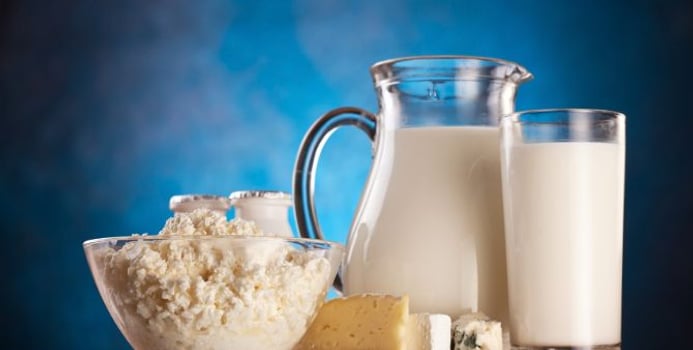You have probably heard about fat burning foods. A quick internet search will lead you to thousands of websites offering a list of the top ten fat burning foods claiming to help you lose weight faster. The belief is that the energy (calories) needed to digest food is more than the amount of calories in the food itself. Therefore, fat burning foods tend to be low in calories and fat but harder to digest. Examples included on the fat burning foods list include foods high in fiber such as beans, vegetables, and fruit. Is it possible to eat foods that actually help you lose weight and burn calories faster?
According to the Mayo Clinic, only 10% of your daily needs aids in digestion of foods that you have consumed. While beans, for example, are low in calories and require more energy to digest, they won't necessarily help you lose weight faster. Milk is also frequently listed as a fat burning food. The claim is that all the calcium in milk helps you lose weight faster by increasing metabolism. But only a few scientific studies have shown this result.
Perhaps a better way of thinking about fat burning foods is more scientific. While fat burning foods may not always increase how much fat you burn, you can consume foods that are high in fiber and whole grain that will keep your insulin levels low, therefore increasing your metabolism. Examples of whole grains include oatmeal, whole grain cereal, and whole wheat bread.
Many people also claim that lean protein, such as chicken, fish, turkey, and pork are also fat burning foods because of its ability to boost metabolism. While there are not studies to prove this, eating foods high in protein, but low in fat, will keep you fuller longer, causing you to consume fewer foods which may, in time, help you reach your desired weight.
Basically, fat burning foods have not been thoroughly proven in scientific studies. What we do know is that foods high in fiber and protein help keep us fuller longer, and that high fiber foods are difficult to digest, causing the body to work harder.
What do you do with all of this information? Follow a diet that works for you. Ideally, a diet high in fresh fruit and vegetables and whole grain, moderate in lean meats and low-fat dairy should help you maintain or lose the weight that you desire. In addition, drink plenty of water and limit juices and sodas. Finally, remember that daily physical activity, about 60 minutes a day, will also help you lose weight.
Rhea Li is a Registered Dietitian who received her Bachelor's degree in Nutrition and Master's degree in Public Health from the University of Texas. She has a special interest in working with children and has received her certification in pediatric weight management. Currently, she is working on a research study to determine the importance of nutrition in pediatric cancer patients. In the past, she has worked with pregnant women and their children. In her spare time, she enjoys being with family, exercising, traveling and of course, eating.



